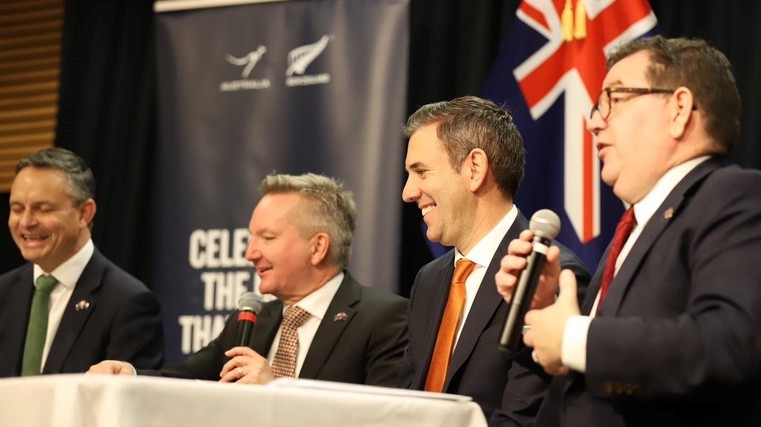Trans-Tasman pact targets EVs

The New Zealand and Australian governments have signed a climate change pact that aims to stimulate the production and supply of electric and zero-emissions vehicles into Australasia.
It comes after representatives from both nations met in Wellington as part of the inaugural Australia-New Zealand Climate and Finance Ministers’ meeting on June 8.
Enhancing co-operation and supporting accelerated climate action came up for discussion during the event as governments of both countries seek to curb emissions and help keep global warming below 1.5C.
Grant Robertson, Minister of Finance, and James Shaw, Minister of Climate Change, attended the meeting with their Australian counterparts – Jim Chalmers, Treasurer, and Chris Bowen, Minister for Climate Change and Energy.
The ministers have agreed a joint statement outlining work on climate change to “ensure the resilience and prosperity of the region”, with the document including goals in the automotive space.
“Ministers have committed to co-ordinate efforts to stimulate production and supply of electric and zero-emissions vehicles into the Australasian market, including accelerating the uptake of zero-emissions vehicles in government fleets, and explore the potential for collaboration on vehicle manufacturing and improving charging infrastructure,” the statement says.
“New Zealand will collaborate with the Australian government fleet teams, including federal, state and territory jurisdictions, to accelerate the uptake of zero emission vehicles in government fleets.”
Bowen notes the trans-Tasman neighbours use right-hand drive vehicles and were different to key markets where cars are made, “so we need to speak with one voice to those manufacturers”.
Shaw told the NZ Herald it makes sense for the two countries to align supply chains and financial systems as they pursue similar goals around electric vehicles and renewable energy.
“Countries around the world are gearing up to electrify their vehicle fleets,” he explains.
“Smaller markets like ours, at the very far end of global supply chains, are at risk of missing out.
“If manufacturing does move closer to us, then that can only be a good thing in terms of our countries’ transitions.”
New Zealand and Australia are both committed to reaching net zero emissions by 2050.
Other outcomes of the meeting include an agreement to hold a climate and finance dialogue annually and establish a joint working group to support policy implementation.
A net zero government working group will also be set up to support decarbonising public services, climate-related disclosures and sustainable procurement.
Another focus is for the countries to align sustainable finance frameworks and tools to enhance interoperability and support businesses operating across the economic region.





